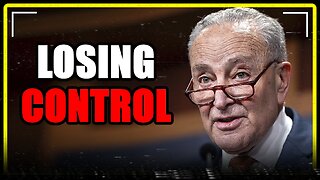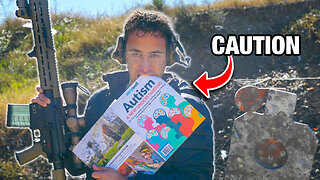Premium Only Content

Lights Out - The Meteor Man June 16, 1937
Episode Summary: Lights Out - "The Meteor Man" (June 16, 1937)
"The Meteor Man" dives into science-fiction horror, a hallmark of Lights Out’s chilling anthology style. The story likely centers on a meteor crash that unleashes a strange entity or transforms a human into something otherworldly. A scientist or curious bystander investigates, only to face terror as the "Meteor Man"—perhaps a glowing, alien-like figure or a mutated human—wreaks havoc. The episode builds suspense with eerie sound effects like sizzling meteors or unearthly hums, culminating in a grim twist, possibly the protagonist’s doom or a warning about tampering with cosmic forces. (No recording survives, so the summary is based on the title and Lights Out’s blend of sci-fi and horror.)
Actors and Roles
Detailed casting information for Lights Out episode "The Meteor Man" (June 16, 1937) is scarce, as radio shows of the era, including this NBC series created by Wyllis Cooper, rarely documented full credits. The Chicago-based production used a pool of talented radio actors. Likely performers include:
Lou Merrill or Ted Maxwell as the lead male character (possibly the scientist, victim, or "Meteor Man"). Both were regular voices in Lights Out, known for dramatic roles in horror.
Supporting roles (e.g., scientists, terrified onlookers, or supernatural entities) were likely played by stock actors such as Mercedes McCambridge (early in her career) or others from NBC’s Chicago studio, though specific roles are unconfirmed due to lost records.
National News in the USA: Week of June 16, 1937
Labor Violence: The Memorial Day Massacre (May 30, 1937) fallout dominated headlines, with investigations into the deaths of 10 striking steelworkers in Chicago. Labor tensions, particularly with the CIO’s steel industry strikes, remained a focal point.
Economic Concerns: The U.S. economy showed signs of faltering after years of New Deal recovery. Reports warned of rising unemployment and a looming recession (later called the Roosevelt Recession), with debates over federal policies.
Amelia Earhart’s Flight: Amelia Earhart’s round-the-world flight was underway, capturing public fascination. News likely covered her progress (she vanished in early July 1937), with updates on her Pacific leg.
International Tensions: Nazi Germany’s support for Franco in the Spanish Civil War and Japan’s aggression in China were raising alarms. U.S. papers reported on neutrality debates and fears of global conflict.
-
 2:07:06
2:07:06
Side Scrollers Podcast
18 hours agoHasan Piker CAUGHT LYING AGAIN + Twitch URGES LEFTIST IDEOLOGY + More | Side Scrollers
54.4K9 -
 8:40
8:40
MattMorseTV
14 hours ago $5.67 earnedSchumer just KICKED OFF the Left-Wing CIVIL WAR.
11.7K25 -
 21:39
21:39
Nikko Ortiz
2 days agoI Take A North Korean Shooting
14.3K4 -
 1:46:26
1:46:26
The Michelle Moore Show
18 hours ago'The Religion Invasion In the U.S. and the Deep State Agenda' Guest, Mark Taylor: The Michelle Moore Show (Nov 3, 2025)
21.3K21 -
 LIVE
LIVE
TruthStream with Joe and Scott
5 days agoSovereign Codes & Cosmic Infrastructure,Ufo's, UAP's, Monads, Matrix Satellites, Interstellar Visitors, SYRONA #505
270 watching -
 LIVE
LIVE
Lofi Girl
2 years agoSynthwave Radio 🌌 - beats to chill/game to
154 watching -
 5:55:11
5:55:11
MattMorseTV
11 hours ago $89.30 earned🔴Trump's '60 Minutes' INTERVIEW + MUCH MORE.🔴
157K45 -
 2:02:36
2:02:36
Badlands Media
15 hours agoBaseless Conspiracies Ep. 157: Jack the Ripper, the Crash & the Great Disclosure Countdown
35.6K20 -
 2:06:09
2:06:09
Inverted World Live
12 hours agoMysterious Crash at Area 51 | Ep. 134
40K14 -
 2:48:59
2:48:59
TimcastIRL
10 hours agoTrump Endorses Cuomo, Says NO COMMIE MAMDANI, Obama REFUSES To Endorse Mamdani | Timcast IRL
276K200